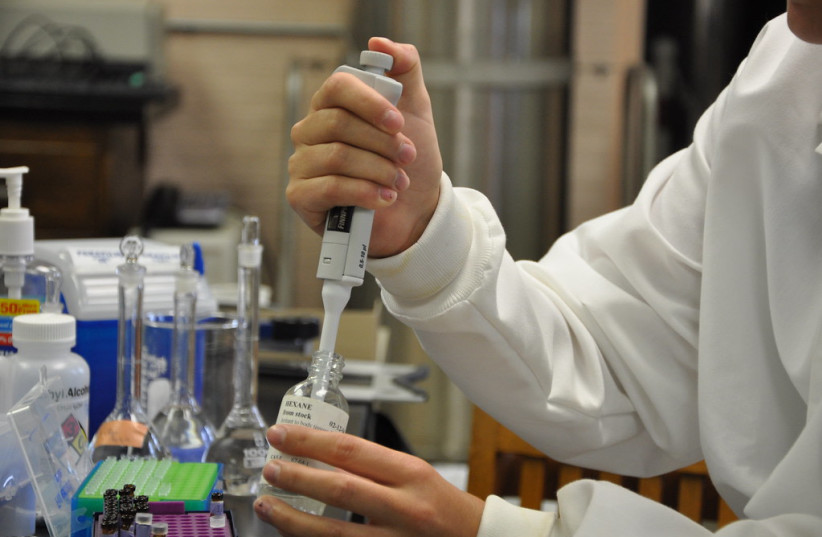In recent years, calls have increased for scientists to be held accountable for the social impact of their research and findings. As shown by recent criticism and retractions of high-profile studies, there is a lack of resources and guidance on how one can conduct research in a socially responsible manner.
Even motivated researchers might publish work that has negative social impacts. Scientific research must meet clear ethical guidelines to prevent harm to those who participate in the studies. Research can also indirectly harm individuals and groups, for example by shaping social perceptions and inspiring policy.
Researchers receive little or no training on how to consider and minimize such harm, according to Dr. Niv Reggev of the Psychology Department and School of Brain Sciences and Cognition at Ben-Gurion University of the Negev (BGU) in Beersheba. Reggev and his international colleagues have published 10 simple rules for socially responsible science in the latest issue of PLOS Computational Biology.
Although scientific papers used to be accessible to relatively few experts, today they can reach an incredibly wide audience very quickly, they wrote.
“A study that captures the public’s attention can reach an audience of many millions via online news outlets, Twitter, podcasts, TV shows, YouTube channels, online forums and so on. This puts great power over the public sphere in the hands of relatively few scientists. Moreover, the speed and breadth of dissemination expose scientists to a new challenge that may catch many of us off-guard: addressing the myriad ways our published research will be interpreted and evaluated by the general public.”

Reggev was joined by Dr. Alon Zivony of Birkbeck College at the University of London and the University of Sheffield; Dr. Rasha Kardosh of New York University; and Dr. Liadh Timmins of Swansea University in Wales, all of whom decided it was time to brainstorm some actionable rules.
“Scientific studies impact societal norms through how they are designed, conducted and reported. Although acknowledged for many years – perhaps the best-known example of which being a fraudulent study that triggered vaccine hesitancy – scientists interested in ensuring their outputs don’t unwittingly cause societal harm often lack the tools and training to do so.
“In response to this lacuna, we formulated a set of 10 simple rules that can help interested scientists in thinking about socially responsible science. We emphasize these rules are not meant to be prescriptive; rather, they are intended to assist in guiding and thinking about these issues,” the researchers explained.
What are the ten simple rules?
THE FOLLOWING rules govern the entire life cycle of a study, from planning to publication:
1. Get diverse perspectives early on. If you are writing about a marginalized group, consider reaching out to members of that group for “insider” information as they hold perspectives crucial to your research.
2. Understand the limits of your design with regard to your claims. Understand the limits of your design with regard to your claims. Thinking about limitations in advance is always better than a limitations paragraph at the end of a flawed study.
3. Incorporate underlying social theory and historical events. Incorporate underlying social theory and historical events. Social context matters, so excluding it can lead readers to the wrong conclusions about the phenomenon being studied.
4. Be transparent about your hypothesis and analyses. Preregistering the study protocols and analysis limits the risk of drawing incorrect conclusions and inspires confidence in one’s conclusions.
5. Report your results and limitations accurately and transparently. Try not to oversimplify your results. Sometimes science is complicated. Uploading data and analysis to an online repository allows our peers to double-check the data and reproduce the experiment.
6. Choose your terminology carefully – If you are coining a new term or discussing a particular group, make sure you aren’t reinforcing stereotypes. One way to avoid this is to run it by some members of the group you are researching.
7. Seek a rigorous review and editorial process. Such a process is the last line of defense in keeping the scientific literature free from errors and flaws that the authors overlooked. A rigorous review process also increases the confidence of the scientific community and the general public in the results.
8. Play an active role in ensuring correct interpretations of your results. Work with the university or journal press offices to ensure that the press release sent out is accurate and does not sensationalize the findings.
9. Address criticism from peers and the general public with respect. Hot-button topics generate knee-jerk responses as well as thoughtful criticism. Take time to review criticism and respond thoughtfully and with respect to all.
10. When all else fails, consider submitting a correction or a self-retraction. If subsequent criticism reveals a flaw, then a correction or a self-retraction might be in order. While a self-retraction is viewed as a “heroic” admission of one’s mistakes, journal retractions are perceived as a “guilty” verdict.
“When no training exists, scientific outputs can often unknowingly harm society. From reinforcing social stereotypes to creating a biased AI-based tool, well-meaning scientists often generate scientific studies that unwittingly lead to detrimental societal impacts,” Reggev and his team concluded. “Here we proposed a theoretical framework and a set of ten actionable rules to help scientists prevent such negative societal consequences.”
